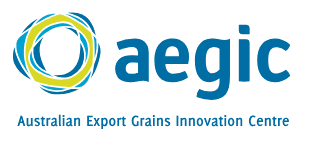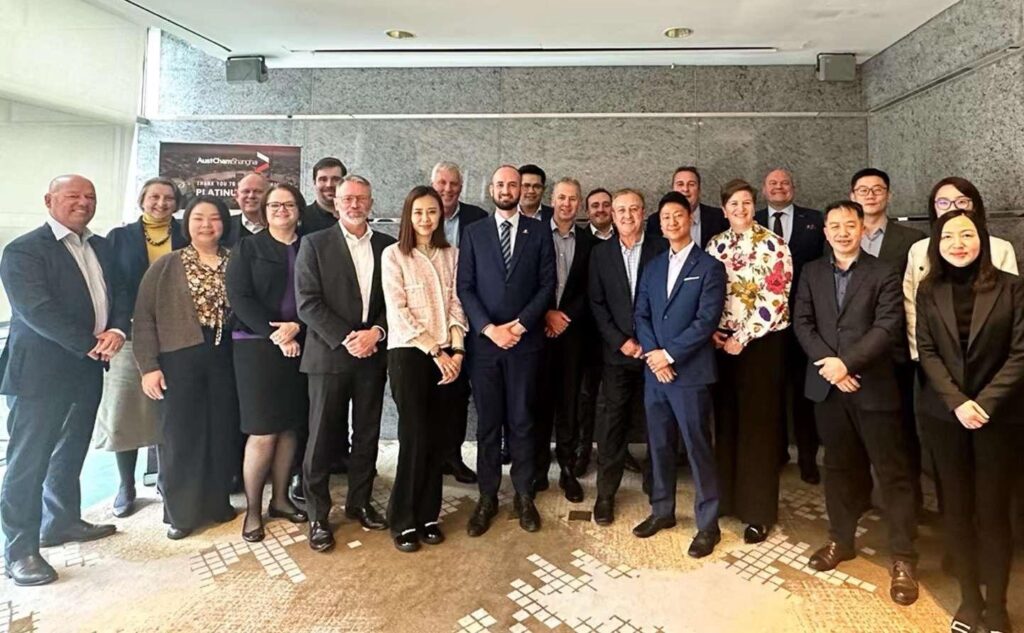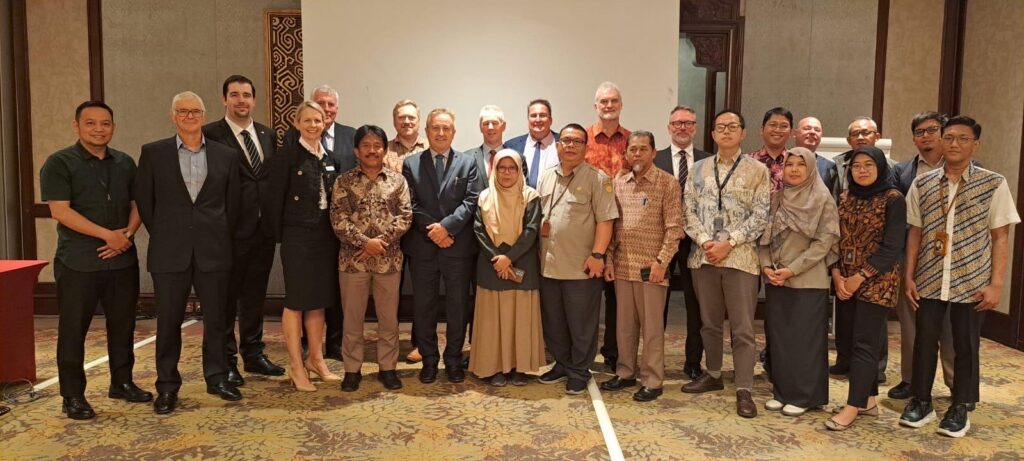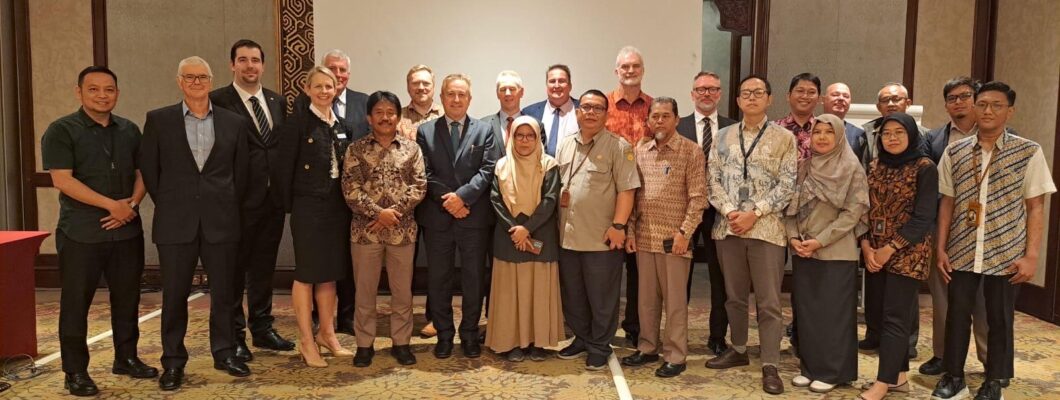Positive discussions relating to various aspects of the grain supply chain were held recently when a senior Australian delegation met with decision makers in Indonesia and China.
The visit was part of the Grain Trade Australia (GTA)-facilitated Australian Grains Industry Conference (AGIC) Asia, with Australian delegates representing GTA, Grains Australia, the Australian Export Grains Innovation Centre (AEGIC) and Australian Oilseeds Federation (AOF).
We wish to acknowledge the Australian Embassy and staff in Jakarta and Beijing for chairing the discussions and their assistance in organising the Roundtable meetings, and those Indonesian and Chinese Government officials that took the time to meet with the Australian delegation.
Summary:
- Grain Trade Australia (GTA) facilitated the Australian Grains Industry Conference (AGIC) Asia in Jakarta, Indonesia and Shanghai, China, with significant involvement from other Australian organisations, companies, and members of Australia’s supply chains.
- A senior Australian grain industry delegation, with representatives from GTA, Grains Australia, AEGIC and AOF met with government and industry officials on the side of AGIC Asia in Jakarta, Shanghai, and Beijing.
- Key messaging from speakers and organisations represented at AGIC Asia addressed areas relating to grain production, supply, quality, standards, research, nutrition and, importantly, showcased programs of value for importers and processers, including those under the joint Indonesia-Australia IA-CEPA ECP Katalis program.
- The AEGIC-developed eLearning modules for millers (which are a co-investment between Grains Australia and IA-CEPA ECP Katalis) were launched in Jakarta with attendees from both governments and senior industry members from Australia and Indonesia in attendance.
- With the stabilised relationship with China there continues to be opportunity for both countries in improved information exchange, including in-country visits, and activities to improve understanding of the utility of Australian grains.




Indonesia:
Government:
As part of the AGIC Asia Roundtable series, a senior Australian grain industry delegation (with representatives from GTA, Grains Australia and AEGIC) met with multiple Indonesian Government agencies relevant to grains – including aspects of production, import and export, processing, and food security – to identify and discuss matters of interest and importance.
Key aspects of importance to the Indonesian government included:
- Improving services for import and export, including expediting services, making exports and imports more efficient;
- Ensuring the availability, affordability, diversity, nutrition and safety of food for all Indonesians, with a particular focus on staple foods including rice, soybeans, eggs, corn, onions and shallots, sugar, chilli, bovine meat, and poultry meat;
- Increased demand for feed grain and grain-based derivatives needed for the livestock sector, particularly given the President-elect’s Children’s Food Program (which proposes a free milk program for school children and pregnant mothers); and
- Increasing demand for wheat, at about 5 per cent per annum.
eLearning Modules:
The AEGIC eLearning program was officially launched, as part of its South East Asia wheat technical quality seminar series. With support from the Department of Foreign Affairs and Trade (DFAT) and the IA-CEPA ECP Katalis program, the eLearning program is initially aimed at Indonesian flour millers and will upskill workers and increase efficiency in Indonesia’s rapidly growing flour milling industry. AEGIC’s eLearning platform is designed to complement existing internal training offered.
China:
Throughout the visit to China, the grains delegation continued to be informed, from internal and external sources, about Chinese economic conditions. It was clear that consumer confidence is steady, but cautious. Those in the highest of social classes are still buying, but most of the population, and those in the middle class, are looking for value. To do so they are turning from imported to local products, particularly where local quality is matched with imported product, but the price is lower.
Despite this focus on value, health is still vitally important for consumers. Consequently, commodities and products that can improve nutritional outcomes and longevity will be favoured. Sustainability remains a new and evolving concept, and while there is some awareness of sustainability attributes amongst high-income consumers, most of the population focuses primarily on nutrition and quality.
Discussions with various organisations emphasised the need for and importance of information exchange, including in-country visits – both ways. Specific details around this included:
- Showcasing sustainable agriculture, including through demonstration sites;
- Providing information to alleviate post-harvest losses – including showcasing and sharing information around best storage practices;
- Information pertaining to feed varieties and utilisation for better livestock nutrition, including products to reduce methane emissions of bovine animals;
- Improved information sharing on the utility of Australia’s grains, Australia’s classification, and grading systems – particularly those used in brewing;
- Research on malting barley, again emphasising best agronomy practices and turnover of malting varieties;
- Sharing information on sorghum, including research aspects, to better understand the utility and quality properties of Australian sorghum as well as the quality requirements of key market segments, given the large demand within China for food/alcohol-based consumption in addition to feed demand;
- Technical exchange around the use and properties of Australia’s canola and canola meal;
- Collaborative research on pulse production and varieties, including agronomy and utilisation; and
- Information on nutritional aspects of grains.

Forging stability – Australian grain industry delegates with key representatives from China’s agricultural sector.

Strengthening bonds – Senior Australian grain industry delegates with officials from Indonesian Government agencies.
April 23, 2024
